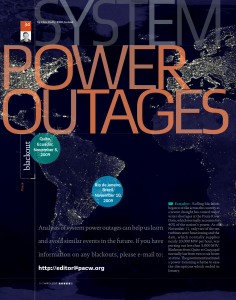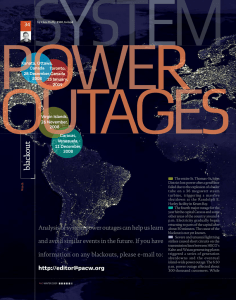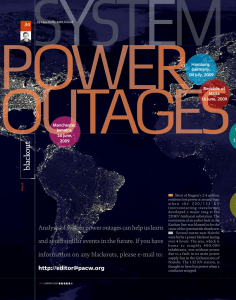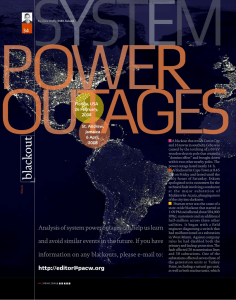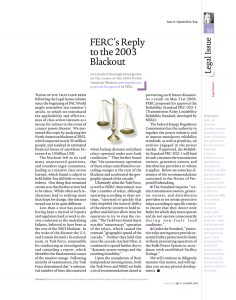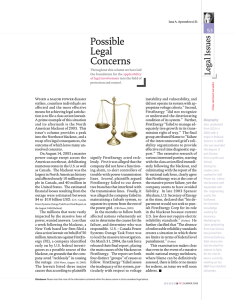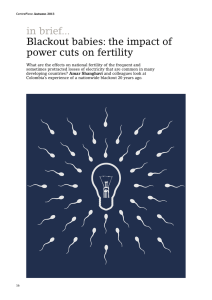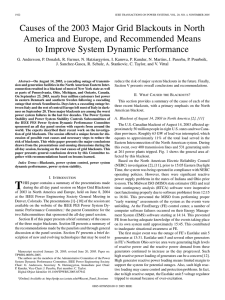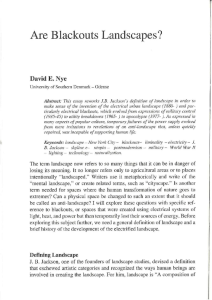sue Is gal Le
advertisement
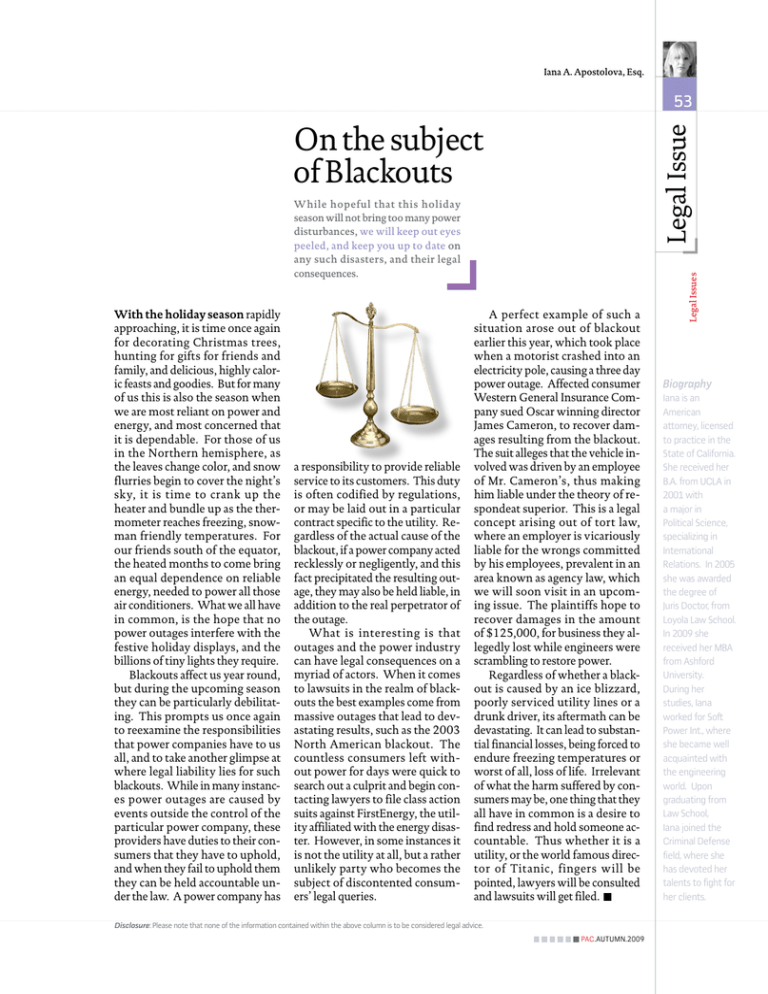
Iana A. Apostolova, Esq. 53 While hopeful that this holiday season will not bring too many power disturbances, we will keep out eyes peeled, and keep you up to date on any such disasters, and their legal consequences. With the holiday season rapidly approaching, it is time once again for decorating Christmas trees, hunting for gifts for friends and family, and delicious, highly caloric feasts and goodies. But for many of us this is also the season when we are most reliant on power and energy, and most concerned that it is dependable. For those of us in the Northern hemisphere, as the leaves change color, and snow flurries begin to cover the night’s sky, it is time to crank up the heater and bundle up as the thermometer reaches freezing, snowman friendly temperatures. For our friends south of the equator, the heated months to come bring an equal dependence on reliable energy, needed to power all those air conditioners. What we all have in common, is the hope that no power outages interfere with the festive holiday displays, and the billions of tiny lights they require. Blackouts affect us year round, but during the upcoming season they can be particularly debilitating. This prompts us once again to reexamine the responsibilities that power companies have to us all, and to take another glimpse at where legal liability lies for such blackouts. While in many instances power outages are caused by events outside the control of the particular power company, these providers have duties to their consumers that they have to uphold, and when they fail to uphold them they can be held accountable under the law. A power company has a responsibility to provide reliable service to its customers. This duty is often codified by regulations, or may be laid out in a particular contract specific to the utility. Regardless of the actual cause of the blackout, if a power company acted recklessly or negligently, and this fact precipitated the resulting outage, they may also be held liable, in addition to the real perpetrator of the outage. What is interesting is that outages and the power industry can have legal consequences on a myriad of actors. When it comes to lawsuits in the realm of blackouts the best examples come from massive outages that lead to devastating results, such as the 2003 North American blackout. The countless consumers left without power for days were quick to search out a culprit and begin contacting lawyers to file class action suits against FirstEnergy, the utility affiliated with the energy disaster. However, in some instances it is not the utility at all, but a rather unlikely party who becomes the subject of discontented consumers’ legal queries. A perfect example of such a situation arose out of blackout earlier this year, which took place when a motorist crashed into an electricity pole, causing a three day power outage. Affected consumer Western General Insurance Company sued Oscar winning director James Cameron, to recover damages resulting from the blackout. The suit alleges that the vehicle involved was driven by an employee of Mr. Cameron’s, thus making him liable under the theory of respondeat superior. This is a legal concept arising out of tort law, where an employer is vicariously liable for the wrongs committed by his employees, prevalent in an area known as agency law, which we will soon visit in an upcoming issue. The plaintiffs hope to recover damages in the amount of $125,000, for business they allegedly lost while engineers were scrambling to restore power. Regardless of whether a blackout is caused by an ice blizzard, poorly serviced utility lines or a drunk driver, its aftermath can be devastating. It can lead to substantial financial losses, being forced to endure freezing temperatures or worst of all, loss of life. Irrelevant of what the harm suffered by consumers may be, one thing that they all have in common is a desire to find redress and hold someone accountable. Thus whether it is a utility, or the world famous director of Titanic, fingers will be pointed, lawyers will be consulted and lawsuits will get filed. Disclosure: Please note that none of the information contained within the above column is to be considered legal advice. PAC.AUTUMN.2009 Legal Issues Legal Issue On the subject of Blackouts Biography Iana is an American attorney, licensed to practice in the State of California. She received her B.A. from UCLA in 2001 with a major in Political Science, specializing in International Relations. In 2005 she was awarded the degree of Juris Doctor, from Loyola Law School. In 2009 she received her MBA from Ashford University. During her studies, Iana worked for Soft Power Int., where she became well acquainted with the engineering world. Upon graduating from Law School, Iana joined the Criminal Defense field, where she has devoted her talents to fight for her clients.
